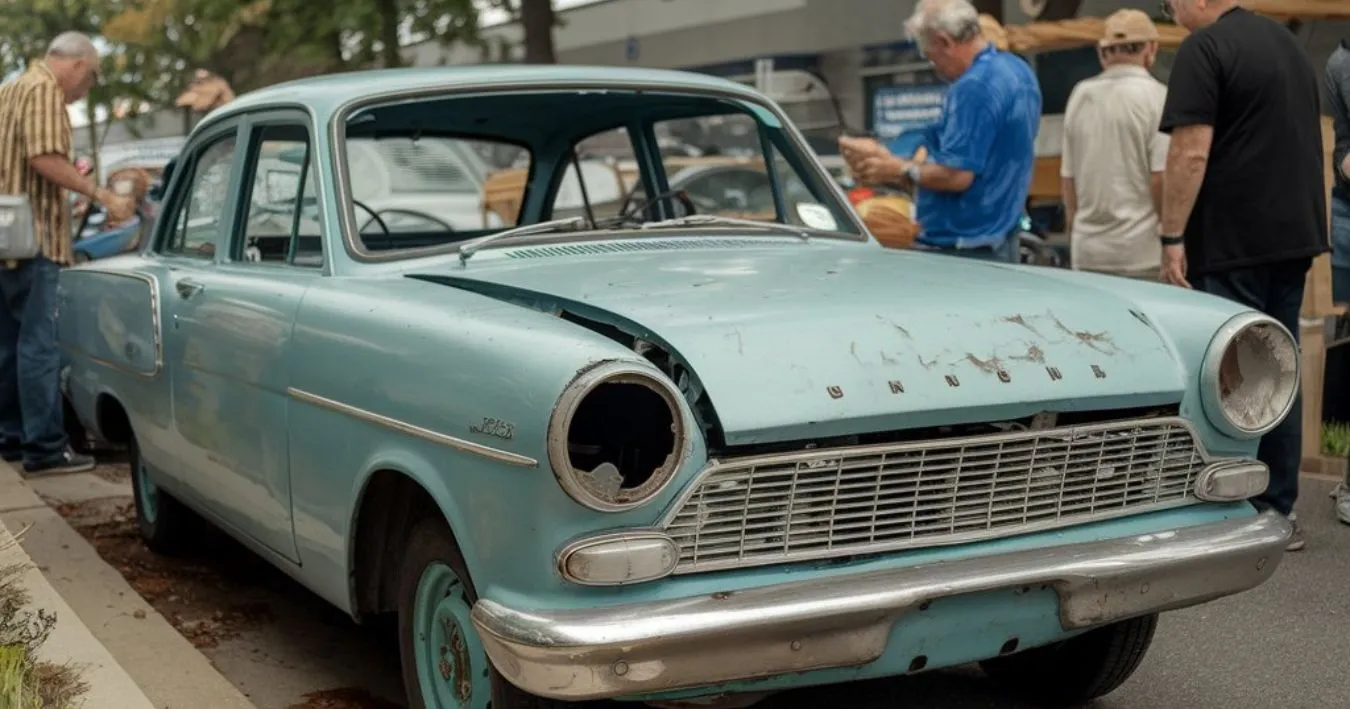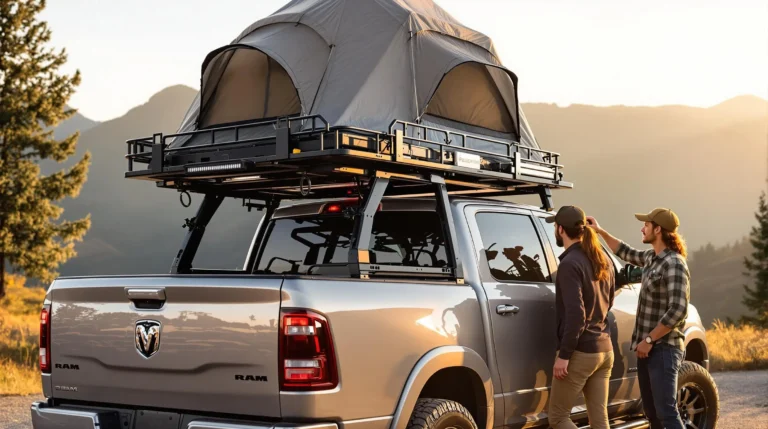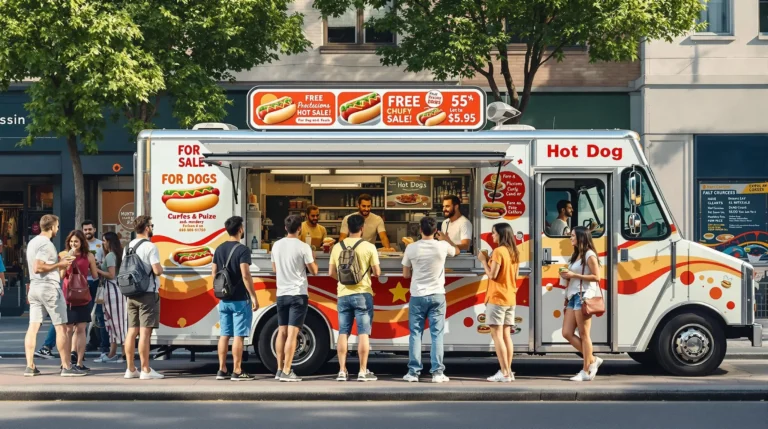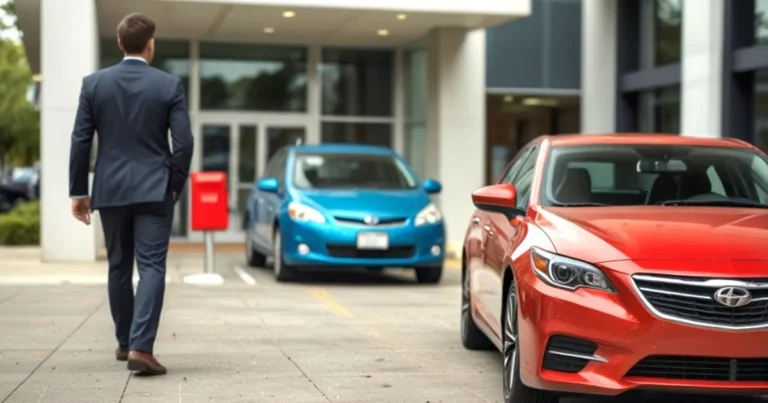Sell Non Running Car: 7 Best Ways to Get Top Dollar in 2024
Is your trusty old car more of a driveway decoration these days? Maybe the engine coughed its last, or the transmission decided to take an early retirement. Whatever the reason, if you’re looking to sell non running car, you’re not alone. It might seem like a headache, but with the right approach, you can turn that immobile vehicle into cash.
Understanding Your Options: Where Can I Sell My Non Running Car?
So, your car won’t start. The first question that probably pops into your head is, “Where can I sell my non running car?” Thankfully, you have more options than you might think. Let’s break down some of the most common routes:
For a detailed breakdown of who buys non-running vehicles, check out SellMax’s comprehensive guide on Who Buys Cars That Don’t Run.

Junk Car Buyers: Quick Cash for Your Junk Vehicle
When you think “sell your junk car,” companies specializing in buying broken or damaged vehicles likely come to mind. These junk car buyers often offer a quick and hassle free way to get rid of your junk vehicle. They’re usually interested in the scrap metal and recyclable parts. The upside? They often provide cash offers and can tow your car away quickly, sometimes even on the same day. It’s a straightforward way to sell your non running vehicle without much fuss.
Salvage Yards: Turning Wrecks into Resources
Salvage yards are another viable option. They buy vehicles, often those that have been in accidents or have significant mechanical issues, to dismantle them for parts. If your car has valuable components that can be resold, a salvage yard might offer a better price than a standard junk car buyer. Keep in mind that the value of non running car at a salvage yard will depend heavily on the condition of its parts. If you’re considering this route, you might want to check out resources like this article on how to sell car to salvage yard.
Private Buyers: Finding a Mechanic or DIY Enthusiast
Don’t underestimate the power of the private market. There are individuals out there – mechanics who buy cars for repair or DIY enthusiasts looking for a project – who might be interested in your non running car. This route can potentially fetch you a higher price than selling to a junkyard, especially if your car has desirable parts or is a model that’s sought after for restoration. However, it requires more effort on your part, including advertising, negotiating, and arranging for the buyer to pick up the vehicle.
Dealerships: Trade In Non Running Car? Maybe.
The idea of a trade in non running car at a dealership might seem far-fetched, but it’s not entirely impossible. Some dealerships, particularly those selling used cars, might consider taking your non working car, especially if you’re buying another vehicle from them. However, don’t expect a high trade-in value. They’ll likely factor in the cost of repairs or simply see it as scrap. It’s worth asking, but be prepared for a low offer. Keep in mind that some dealerships that take non running cars might only do so under specific circumstances.
Online Marketplaces: Reaching a Wider Audience
The internet has opened up new avenues for selling just about anything, including non drivable cars. Platforms exist specifically for selling damaged or non-running vehicles. This allows you to reach a wider pool of potential buyers, including those looking for parts or project cars. Just be sure to provide accurate descriptions and clear photos to avoid any misunderstandings.
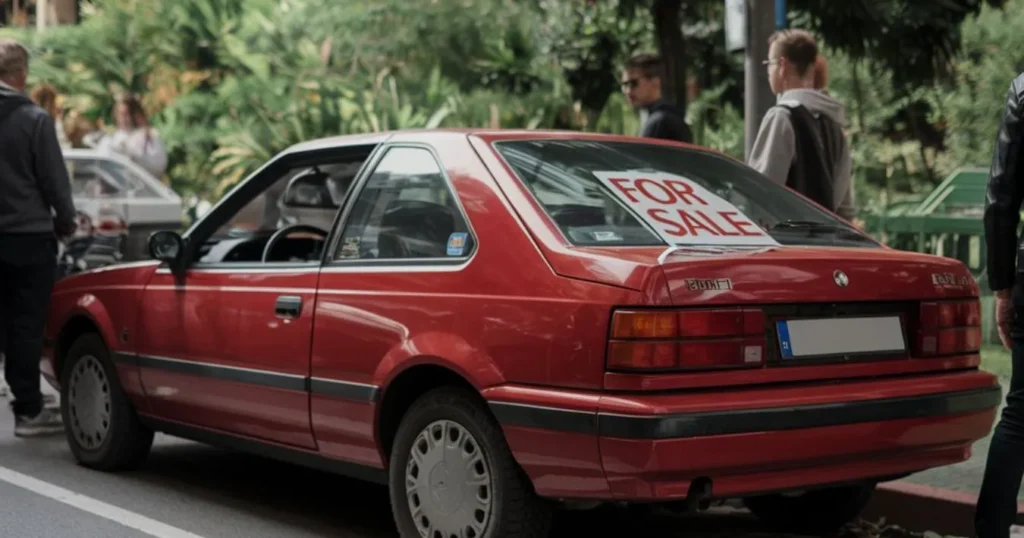
Maximizing Your Return: How Much Can I Sell My Non Running Car For?
The big question, of course, is “how much can I sell my non running car for?” The answer isn’t straightforward, as several factors come into play:
- Make and Model: Certain makes and models hold their value better than others, even when not running. A classic car or a popular model with readily available parts might be worth more.
- Age and Condition: While it’s not running, the overall condition of the car still matters. Is the body in good shape? Are the interior components intact? Significant rust or damage will lower the price.
- Missing or Damaged Parts: If key components are missing or severely damaged, it will impact the value of non running car.
- Local Demand for Scrap Metal: The current prices for scrap metal can influence what places that buy non running cars are willing to offer.
- Completeness of Paperwork: Having the title and registration in order will make the selling the car process much smoother and can potentially increase its value.
While it’s difficult to give an exact figure without knowing the specifics of your vehicle, you can get a rough estimate by researching what similar broken cars are selling for in your area. Websites that offer valuations for used cars might also give you a baseline, even if your car isn’t currently operational.
According to MarketWatch’s 2024 guide, you can expect to get between $100 and $500 for older, damaged vehicles when selling to junk car services.
Preparing Your Non Running Car for Sale: Making it More Appealing
Even though your car isn’t running, there are steps you can take to make it more appealing to potential buyers and potentially increase your cash offers:
- Clean it Up: A clean car, inside and out, looks better and suggests it was at least somewhat cared for. Remove any personal belongings and give it a good wash. Even a non-running car can benefit from a little elbow grease. Speaking of cleaning, if you’ve ever struggled with water spots, this article on remove water spots from car might be helpful for your next vehicle: https://www.mysafestcar.com/remove-water-spots-from-car/.
- Gather Your Paperwork: Having the title, registration, and any maintenance records readily available will make the transaction smoother and build trust with the buyer.
- Take Clear Photos: If you’re selling online, good quality photos are crucial. Show the car from all angles, highlighting its best features and being honest about any damage.
- Be Honest in Your Description: Clearly state that the car is not running and describe any known issues. Transparency is key to avoiding problems later on.
- Consider Minor Repairs (Maybe): Depending on the issue and the potential return, you might consider making minor, inexpensive repairs. However, be cautious not to invest too much money into a car you’re trying to get rid of.
For professional guidance on valuing your non-running vehicle, webuyanycar provides detailed information on selling non-runner cars and getting the best possible price.
Once you’ve decided where to sell your non running car and have prepared it for sale, here are some tips for navigating the actual transaction:
- Get Multiple Quotes: Don’t settle for the first offer you receive. Get quotes from several non running car buyers, salvage yards, or potential private buyers to ensure you’re getting a fair price. Online marketplaces like CarBuzz suggest that advertising online is perhaps the best place to sell non-running cars as there are always people looking to buy non-working cars to either fix to use or resell or to rebuild for fun.
- Negotiate: Don’t be afraid to negotiate. Know the value of non running car and be prepared to counter offers.
- Be Wary of Scams: Be cautious of buyers who offer significantly more than the car is worth or who pressure you into a quick sale without inspecting the vehicle.
- Arrange for Towing: Since your car isn’t running, you’ll need to arrange for towing. Many cash for non running cars companies will include free towing, but confirm this beforehand.
- Complete the Paperwork Correctly: Ensure all the necessary paperwork is filled out accurately and that you transfer the title to the buyer. This is crucial for legally selling a vehicle.
- Get Paid: Make sure you receive payment before the car leaves your possession. Cash or a certified check are generally the safest options.
Making the Decision: Is Selling the Right Choice?
Before you jump into selling a car that needs repairs, take a moment to consider if it’s truly the best option. Depending on the issue and the car’s overall condition, repairing it might be a viable alternative. Get a quote from a trusted mechanic to assess the repair costs. Compare that cost to the potential selling price of the non-running car and the cost of replacing it. Sometimes, fixing the problem, even if it seems significant, can be more economical in the long run. For tips on keeping your next car in good shape.
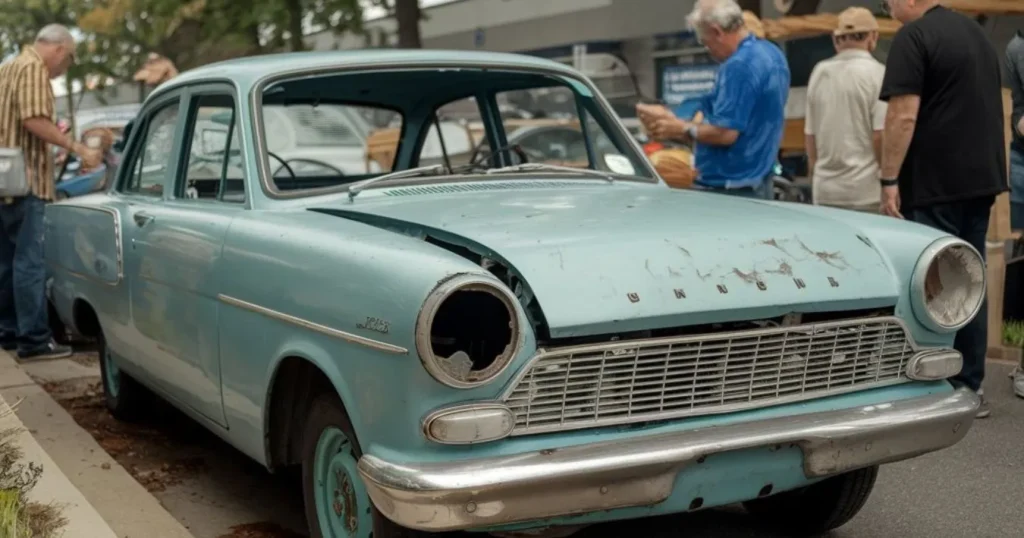
Conclusion: Turning Your Lemon into Lemonade
Selling a sell car not running might seem like a daunting task, but by understanding your options, preparing your vehicle, and navigating the sale wisely, you can turn that non-functional car into cash. Whether you choose to go with junk car buyers, a salvage yard, or a private sale, remember to do your research, get multiple quotes, and be honest throughout the process. You might be surprised at how easy it can be to say goodbye to your old clunker and hello to some extra money in your pocket.
Let me know if you would like any adjustments or further refinements to this article!
There are no reviews yet. Be the first one to write one.

